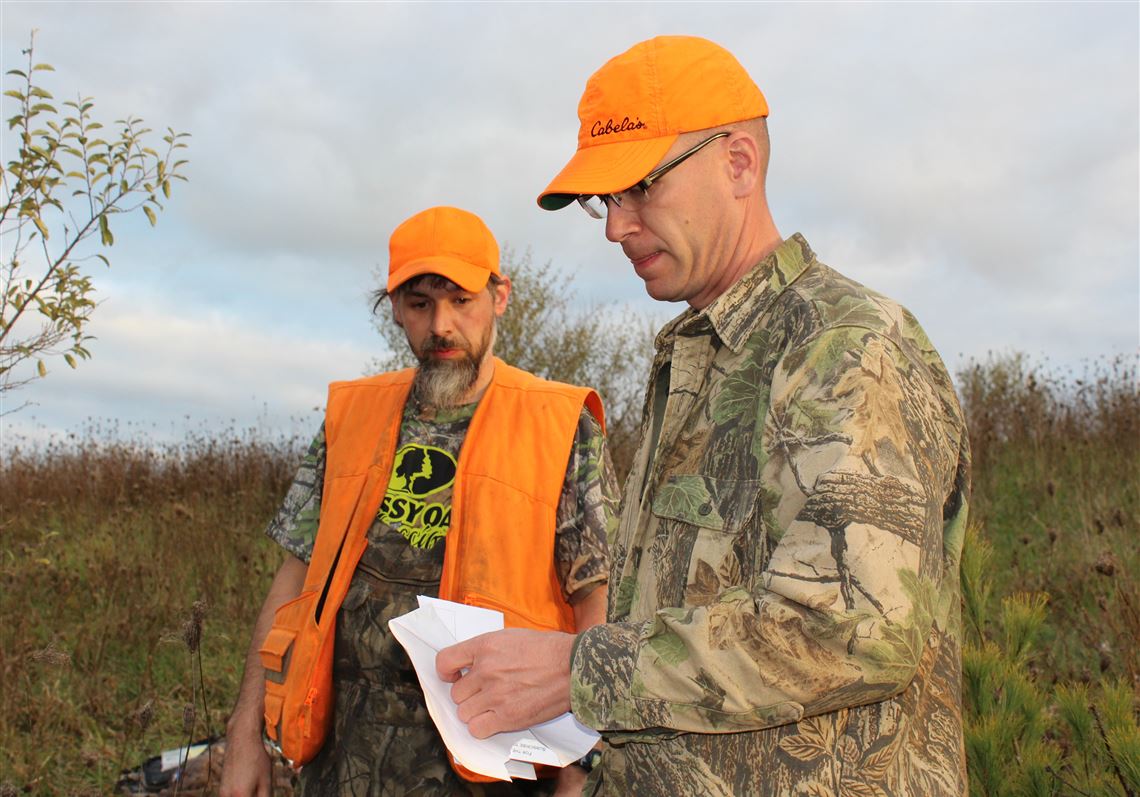CovOps

 Location : Ether-Sphere Location : Ether-Sphere
Job/hobbies : Irrationality Exterminator
Humor : Über Serious
 |  Subject: Excellent: Private hunting clubs sue Pa. Game Commission over searches Subject: Excellent: Private hunting clubs sue Pa. Game Commission over searches  Fri Dec 17, 2021 3:43 am Fri Dec 17, 2021 3:43 am | |
| In a case with constitutional implications, the Pennsylvania Game Commission was sued Thursday by two Western Pennsylvania hunting clubs and a nonprofit libertarian law firm.
The lawsuit challenges the Game Commission’s searches and surveillance of the Clearfield County clubs’ private property.

No trespassing A Fourth Amendment advocacy group is challenging laws that permit the Game Commission to enter private hunting grounds without a warrant or landowner permission. Members of the Punxsutawney and Pitch Pine hunting clubs claim their rights were violated by a regional game warden.
Punxsutawney Hunting Club, Pitch Pine Hunting Club and the Institute for Justice are not claiming the agency violated the law. They are claiming the Pennsylvania law is unconstitutional.
The suit names the state agency and Mark Gritzer, the wildlife conservation officer covering that region. The clubs say Gritzer routinely entered their properties, clearly marked as private, to spy on club members. Two citations were issued: One hunter was cited for not having a hunting license and identification, and another club member was cited for having a loaded gun in a vehicle. The petition claims other club members were approached, and some were given warnings for minor infractions — contacts the clubs say is harassment.
Game Commission spokesman Travis Lau said the agency does not comment on pending litigation.
The petition, filed in Commonwealth Court in Harrisburg, challenges several state laws.
“This is a constitutional challenge to three Pennsylvania statutes that grant Pennsylvania Game Commission officers virtually unchecked power to enter private land to search for evidence of potential state hunting offenses,” the lawsuit says. “The statutes do not require officers to seek an owner’s consent before entering private land. They do not require officers to obtain a warrant. They do not even require officers to have probable cause.”
Pennsylvania’s “warrantless entry statutes” give wildlife officers powers that police and federal authorities lack. The special authority was given to the Game Commission and Fish and Boat Commission by the state Legislature.
Josh Windham, the Institute for Justice attorney who filed the lawsuit, said those statutes violate the Pennsylvania Constitution.
“Article I, Section 8 of the Pennsylvania Constitution protects citizens, their possessions and properties from unreasonable searches without a warrant or probable cause. These [Pennsylvania] laws take all of that away” he said.
The Pennsylvania laws may also run afoul of the U.S. Constitution, which was written 11 years after Pennsylvania’s founding document. The Fourth Amendment of the Bill of Rights protects citizens from unreasonable and warrantless government searches without probable cause, and requires the government to describe in advance the places and people it intends to search.
In a Fourth Amendment case in 1924, the U.S. Supreme Court supported laws that gave the government authority to enter properties, other than yards surrounding homes, without a warrant or landowner permission. In a court led by former President William H. Taft and an opinion written by Justice Oliver Wendell Holmes, the Supreme Court held that “the special protection accorded by the Fourth Amendment to the people in their ‘persons, houses, papers and effects,’ is not extended to the open fields.”
In 1984, the Supreme Court reaffirmed its previous decision.
In Pennsylvania, courts have upheld some government use of warrantless searches. In 2007, the Pennsylvania Supreme Court held that Article I, Section 8 does not include private land and that the “warrantless entry statutes” are constitutionally sound. The implication was that in order to enforce hunting and fishing laws and regulations, authorities must be allowed to search for violators on private properties without prior notice.
For about 100 years, the “open fields doctrine” has been successfully used in cases that did not involve wildlife authorities, granting police authority to cross property lines without warrants. But the tide is starting to turn.
High courts in New York, Montana, Oregon and Vermont, as well as a Washington state appeals court, have stripped law enforcement agencies of those special powers, ruling that the open-fields doctrine does not apply because their state constitutions ban warrantless searches..
The Institute for Justice is litigating a similar case in Tennessee.
“The new thinking is that they can quickly get a warrant when they need to go onto another property,” said the Institute’s Conor Beck. “They’re going to miss some violations, just like you can do all kinds of things in your house that the police never know about. But when they have probable cause and a warrant, they can come in and get you.”
The Game Commission has 30 days to reply to the suit or file for a motion to dismiss. Windham said he expects it to reach the state Supreme Court sometime in 2022.
.https://www.post-gazette.com/life/outdoors/2021/12/16/open-fields-doctrine-pennsylvania-game-commission/stories/202112160145

_________________
Anarcho-Capitalist, AnCaps Forum, Ancapolis, OZschwitz Contraband
“The state calls its own violence law, but that of the individual, crime.”-- Max Stirner
"Remember: Evil exists because good men don't kill the government officials committing it." -- Kurt Hofmann |
|

